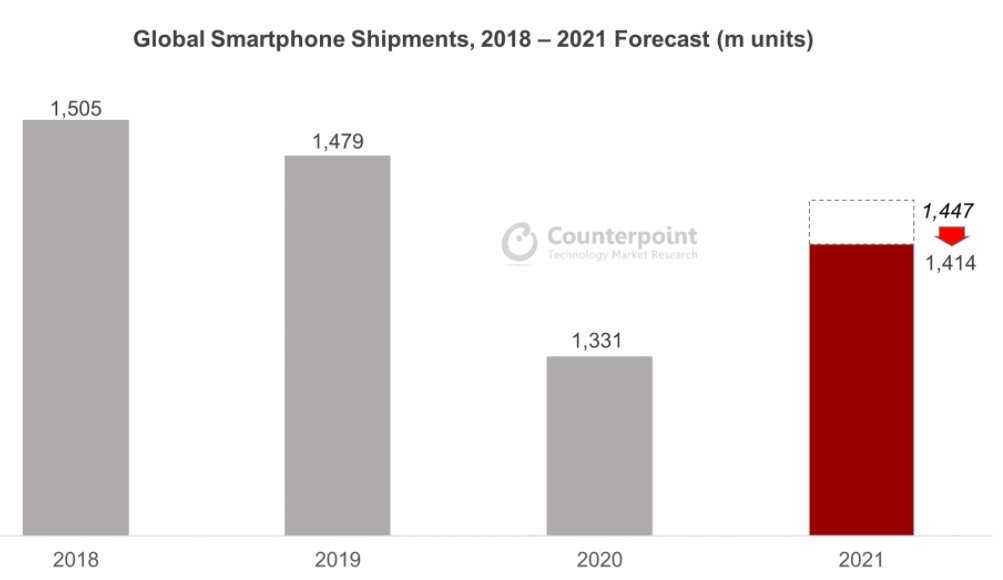What was thought to be a periodic issue now seems a full-blown crisis. We are talking of chip shortage that is causing upheavals in the smartphone industry. So much so all the previous numbers predicted are now being hit for a six. The Counterpoint research agency that had forecast 9% annual growth for smartphone shipments has lowered it to 6%.
The Counterpoint Research’s latest Global Smartphone Quarterly Shipment Forecast says that the total units shipped for 2021 are expected to grow by only 6% annually to 1.41 billion units --- for the record, the previous figure predicted was 1.45 billion units.
This is a bad news for the industry that was hoping to recover from the problems of the pandemic in 2020.
- Global chip shortage could soon drive up the price of smartphones
- Global chip shortage could drag on until 2023
90% of the smartphone industry affected
Smartphone brands had reportedly placed large component orders from the end of last year. However, some of these brands are reporting they had only received 80% of their requested volumes on key components, and the situation seems to be getting worse. Some smartphone makers are now saying they are only receiving 70% of their requests, creating multiple problems.
The research report claims that 90% of the industry is affected and this will impact the second half forecast for 2021.

"Semiconductor shortages had been plaguing the market since Q4 2020, but the smartphone industry had managed to grow despite shortages in components like DDIs and PMICs. This was done by advanced planning and order placing along with hoarding of certain components like Application Processors (AP) and camera sensors which are typically much higher value than DDIs or PMICs," the Counterpoint report said.
In the case of application processors, one of the most crucial elements in smartphones, the shortage was triggered by low yield rates in newly established fab lines. Qualcomm and MediaTek rely on these foundries and manufacturing problems result in fewer processors supplied which in turn affects smartphone brands.
Tom Kang, Research Director at Counterpoint Research said, “the semiconductor shortage seems to affect all brands in the ecosystems. Samsung, Oppo, Xiaomi have all been affected and we are lowering our forecasts. But Apple seems to be the most resilient and least affected by the AP shortage situation”.
- Flipkart Big Billion Days: New launches and expected deals of tech product
- Amazon Great Indian Festival sale: best deal and offers of tech products
from TechRadar - All the latest technology news https://ift.tt/3mmyzRd




0 Comments